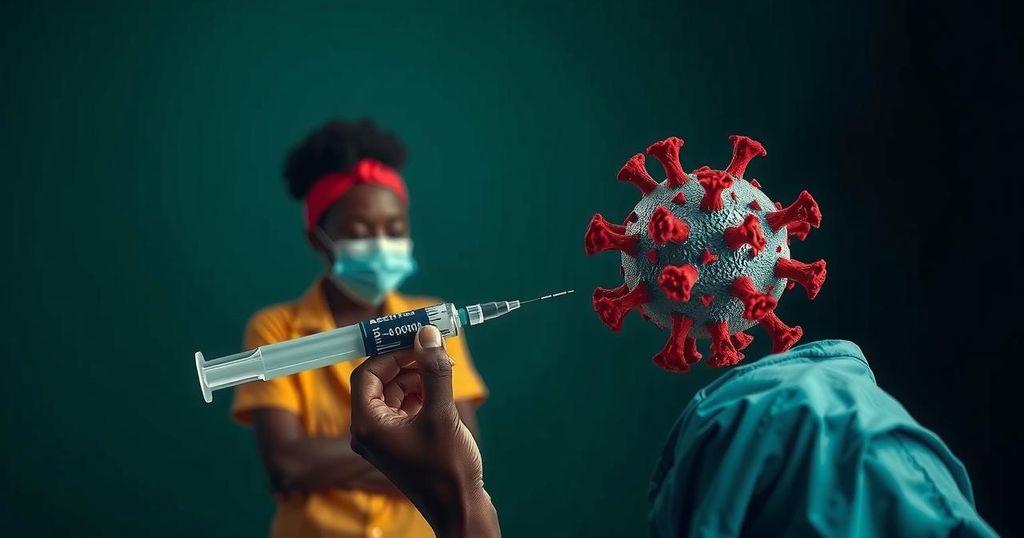Over 50,000 people have been vaccinated against mpox in the Democratic Republic of Congo and Rwanda as part of a concerted effort to address the outbreak. More than 1,100 deaths have been attributed to mpox in Africa, with warnings of a potentially severe pandemic. The WHO has facilitated vaccine distribution through international donations.
On Friday, the Director-General of the World Health Organization (WHO) reported that over 50,000 individuals have received vaccinations against mpox, formerly known as monkeypox, in the Democratic Republic of Congo (DRC) and Rwanda. This imperative public health initiative comes in the wake of a staggering death toll exceeding 1,100 related to mpox in Africa, amidst warnings from the African Union’s health authorities about a potential pandemic that could surpass the severity of COVID-19. The ongoing mpox outbreak remains a significant concern as stated by the African Union’s health watchdog, which has called for enhanced resources to manage the situation effectively. Since the beginning of the year, nearly 48,000 cases have been identified across the continent, with the DRC identified as the epicenter of the outbreak. It was noted that the vaccination efforts were launched last month in response to the growing crisis. Dr. Tedros Adhanom Ghebreyesus, the WHO Director-General, emphasized the collaborative efforts in combating the outbreak, highlighting the vaccination campaign made possible by generous contributions from the United States and the European Commission. According to Dr. Ghebreyesus, “So far, more than 50,000 people have been vaccinated against mpox in the Democratic Republic of Congo and Rwanda, thanks to donations from the United States and the European Commission.” Furthermore, he remarked that nearly 900,000 doses of vaccine have been allocated this week to nine countries through a mechanism established by the WHO and its partners. He added that the current allocation marks the beginning of a larger effort, anticipating the delivery of almost six million vaccine doses by the end of 2024 under the Access and Allocation Mechanism (AAM). Mpox is a viral illness closely related to smallpox, primarily transmitted from animals to humans, but capable of human-to-human transmission through intimate contact. Symptoms may include fever, muscular discomfort, swollen lymph nodes, and a distinctive rash that evolves into blisters.
Mpox, previously termed monkeypox, is a viral disease emerging as a significant public health concern in several African nations, particularly in the DRC, which has recorded a high incidence of cases and fatalities. The recent surge in infections has prompted health authorities, including the WHO and the African Union, to launch vaccination campaigns aimed at controlling the outbreak. Vaccination serves as a critical tool in managing this viral disease, especially as the African continent continues to deal with the repercussions of the COVID-19 pandemic.
In summary, over 50,000 vaccinations against mpox have been administered in the DRC and Rwanda as part of an initiative responding to a critical public health crisis marked by more than 1,100 deaths across Africa. The efforts are bolstered by international support, with significant vaccine doses being allocated to various countries to combat mpox effectively. The call for more resources highlights the urgency in preventing a potentially severe pandemic, which underlines the importance of vigilance and preparedness in public health.
Original Source: www.france24.com






